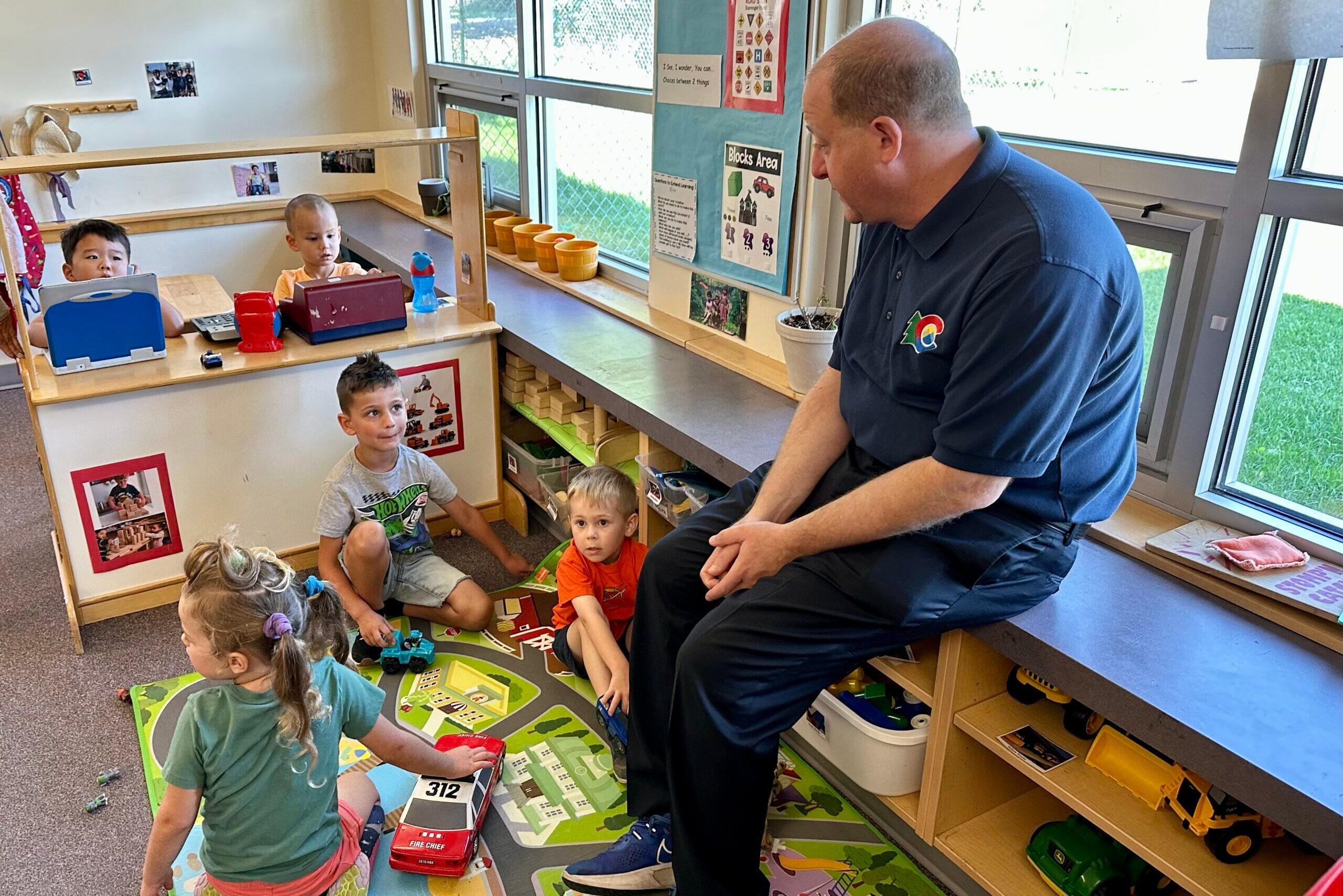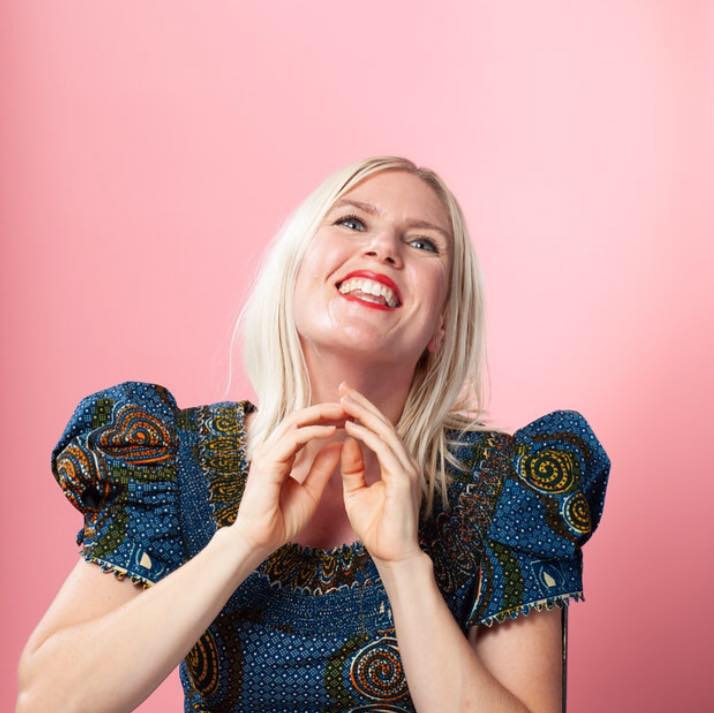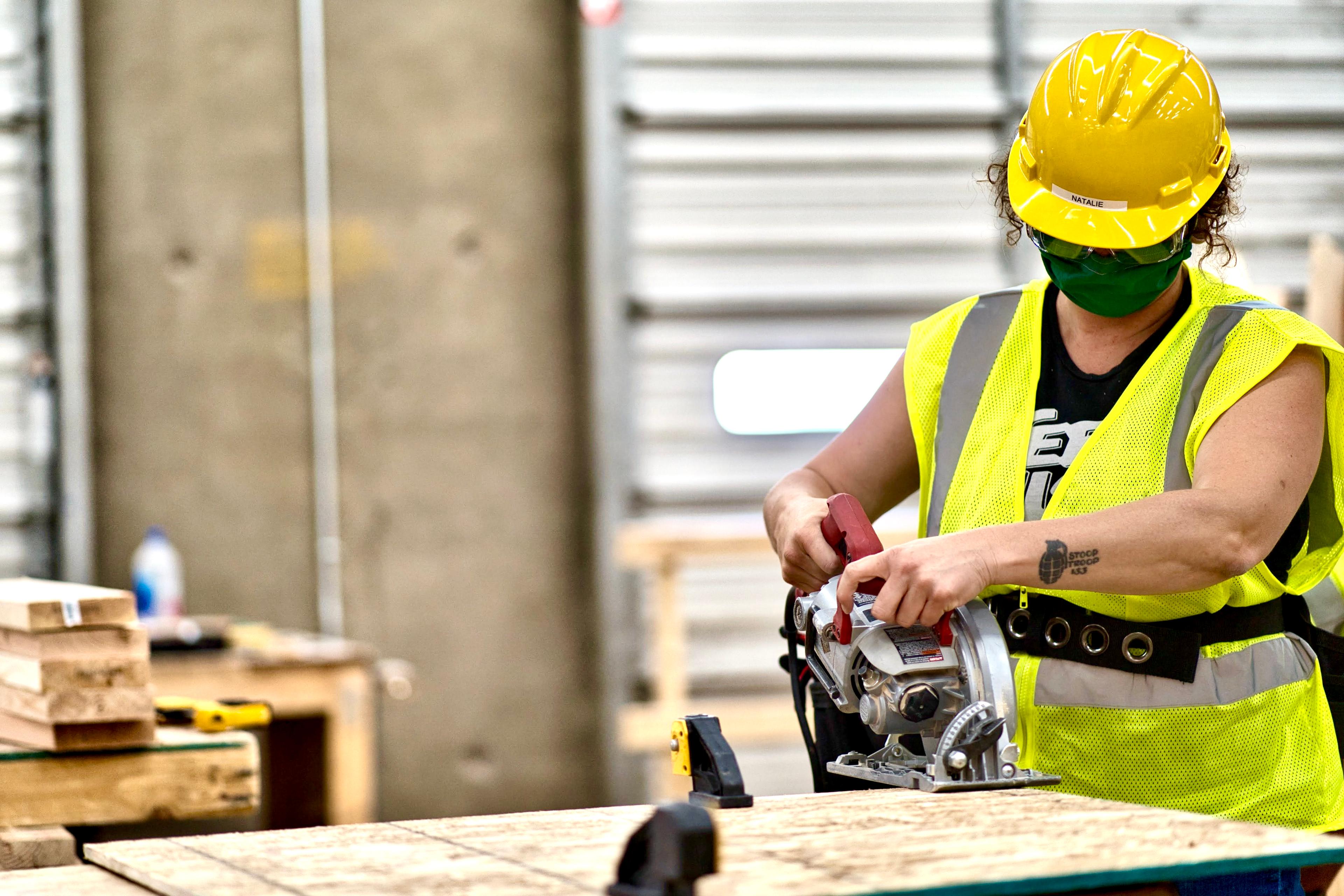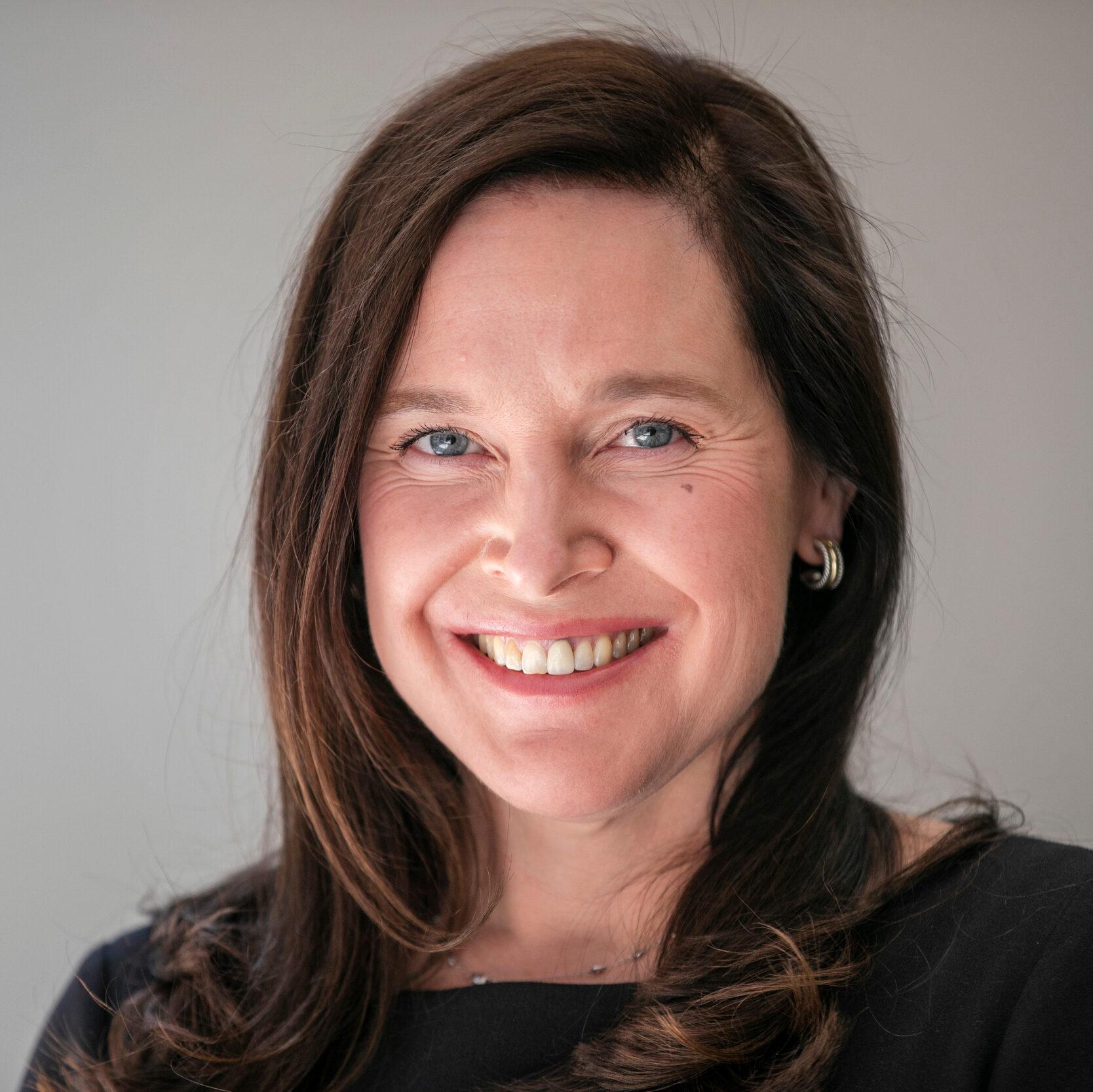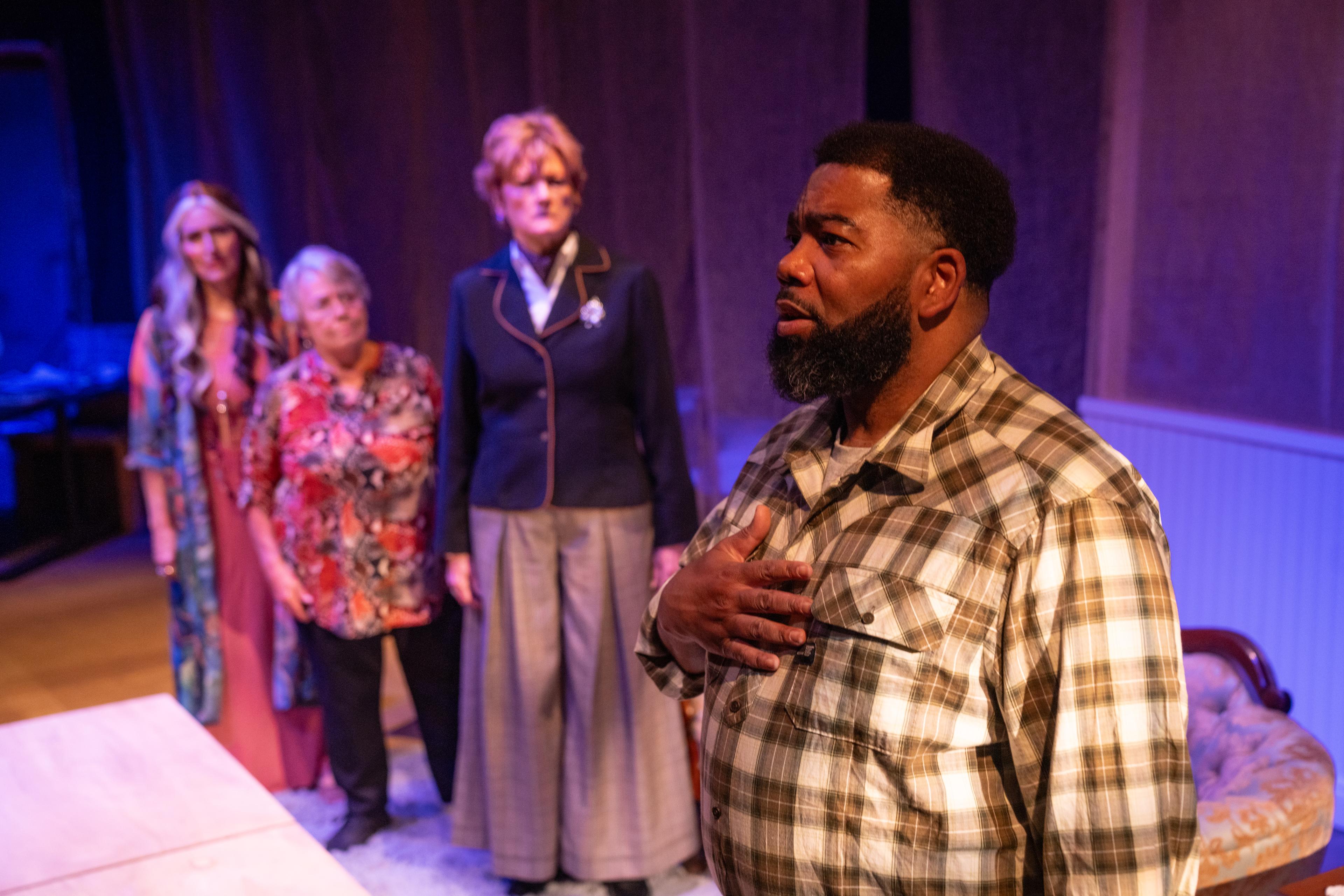
Reminders of the terrifying flood line the walls and shelves of the Jamestown Mercantile Cafe.
Emergency meal kits sit on the top shelf of the pantry. In the kitchen, there's a Budweiser-branded can for fresh drinking water – one of hundreds the company donated in the aftermath. A photo of a black and white cat named Shadow hangs near the front door.
Shadow belonged to Joey Howlett, a longtime community member who died when a mudslide consumed his house.
The cat photo is a reminder of a bright spot in the tragedy, said Rainbow Shultz, a flood survivor and owner of the cafe and community center.
"Joey usually had Shadow sleeping on his chest when he went to sleep every night, and so we all assumed that shadow had perished with Joey in the mudslide," Shultz said. "A few months later, Joey's good friend Heather was hiking around the gulch up behind his house and there was Shadow missing a leg, but still walking around outside the house."
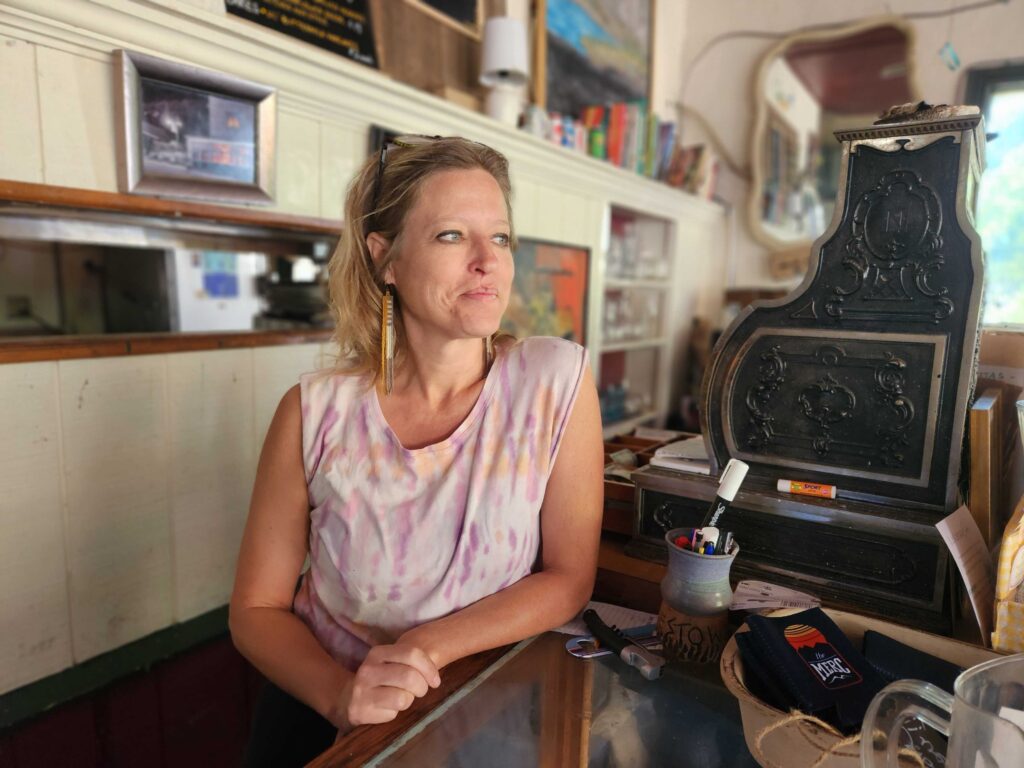
The story is one of countless memories residents of Jamestown and other Front Range communities are sharing as they commemorate 10 years since devastating flooding took place across the region starting Sept. 11, 2013.
Waters from torrential rain killed nine residents. Mudslides knocked out dozens of homes and caused billions of dollars in road damage.
Jamestown, a small town several miles west of Boulder, saw its main road destroyed. Dozens of residents moved away in the aftermath. But Shultz stayed and reopened the Mercantile, or "Merc."
She says Jamestown still maintains its small town charm and tight-knit feel a decade later.
This interview was edited for length and clarity.
Matt Bloom: What's your first memory of the flood?
Shultz: Well, I couldn't sleep that night because I could hear the boulders going down the creek behind my house. It kind of sounds like thunder except for coming from underground. So I literally was just sitting straight up with my eyes open, just wondering what was happening on the earth around me.
Then I started hearing pounding at the door. When we opened the door and our friend Miles was yelling. He said, "You don't want to hear this, but the mudslide already came down. It already killed Joey. You have to get out now. Get your kids if you want to stay alive."
Joey was our best friend, kind of a father figure here in town, who I originally bought the cafe from and who I spent every morning having coffee with. So we just jumped into action, grabbed the kids, threw them in the car, and we tried to get out of town. My husband tried to go see if he could dig Joey out of his house. We realized really quickly that neither of those things was going to happen. The mudslide was huge on top of Joey's house. Mudslides had blocked either way of escape from town.
Bloom: It destroyed the main road.
Shultz: The main road, yes, on both sides. Both east and west had been covered in mudslides. But we were able to go up away from the creek to DJ and Java's house, and it was remarkable. They actually have two phone lines there, which was incredibly convenient. They had a phone number list. The mayor and a lot of the other community members were stuck up there.
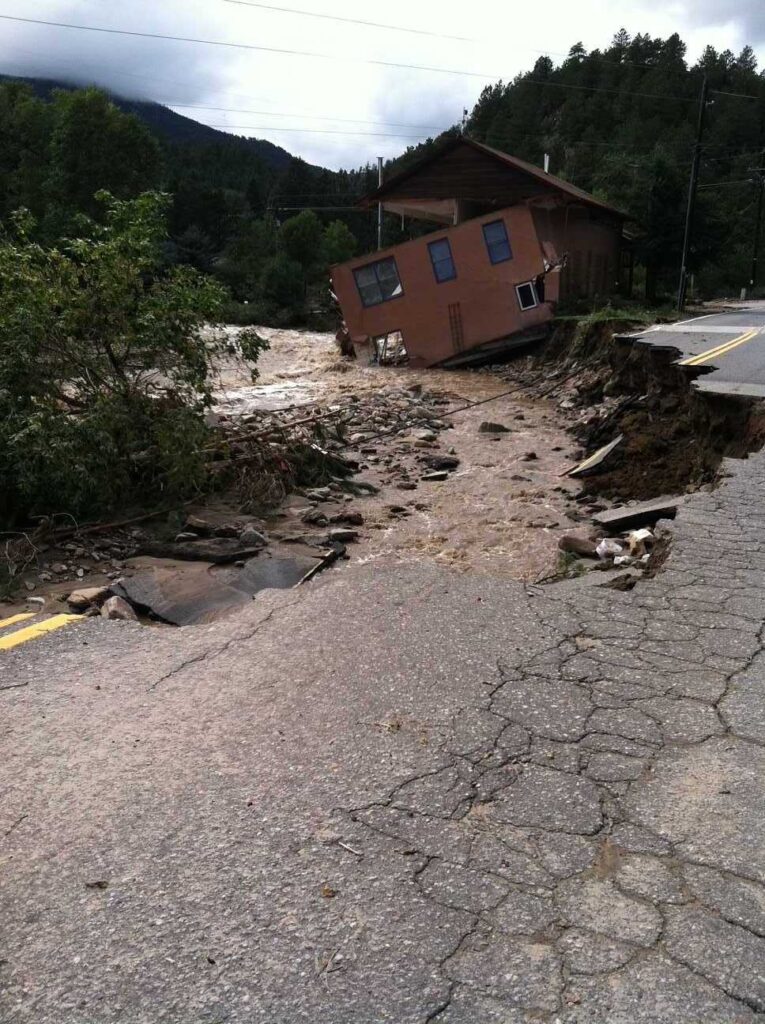
Bloom: This was a house that was higher in elevation?
Shultz: Yeah, we were up the hill a little bit. We went through and called every single household and made sure that they were out. If they didn't answer the phone, we had the neighbor next to them knock on their door. Throughout the course of the night we accounted for every household in town and made sure that they either made it to the school or that they were safe on high ground on the north side as well.
It was really pretty incredible that in the face of us all losing one of our favorite townspeople, that everyone still functioned really quickly and efficiently and made sure that everyone else was saved.
Bloom: So you stayed there overnight and then you evacuated the next day?
Shultz: No, then the next day we realized it was still raining. Mudslides started coming down the mountain on the north side where we were. We went a little further up to Nolan Farmer's house. There, we realized that we were all in danger of a mudslide killing us in that house. So one person, two people at a time would walk the perimeter of the house and try to find out if a mudslide was coming. Below us the creek was rising. So in order to figure out our safest route to actually survive it, we just tried to keep monitoring it in the dark.
We had gotten a call earlier from the National Guard saying, "We're calling off any sort of rescue. You're on your own."
Then the phone and the electric went out, and then we were just in the dark realizing we were completely on our own.
You hear of these towns where a mudslide kills all the people, and that was very likely about to be us. I remember I was trying to figure out if I could put my kids in the garage because there's a cement wall and that could potentially hold back the mudslide over them. Or I could put them on the top floor and then we could sort of surf the mudslide if it hit the bottom of the house. So I had 'em at the top floor and we all just held onto our water bottles. We all were making sure we had enough water to survive. Everyone walked the perimeter of the house and we waited and we waited.
Just before the sun came up, the sound of the rain stopped. That's when we knew we were going to make it.
Bloom: Do you remember what you said to your kids or your family at that time and what happened?
Shultz: No, my kids were sleeping, luckily. We were just so happy the sun came out. We all ran down here to the Mercantile and we made pancakes and pies and we just went through all of the food in the place. We ate most of the candy and drank all the beer. We just celebrated that we survived. It was pretty great.
Bloom: What did your reaction to the flood teach you about yourself?
Shultz: On a personal, spiritual level I came to really understand that change comes at any time and that there's no guarantees. Of course, that's something you're told your whole life, but I had a list of things that might happen: I might get cancer, I might get in a car crash, my parents are probably going to die before me. There's things that you expect. Then one day you wake up and there's no more trees in the forest that you used to sit in. Your kids don't have a school anymore. You don't have a car or a business anymore.
For that realization to happen overnight made me not only have a different understanding of my own life experience and how change is going to come and that all you can do is surrender to it, but also to have empathy for the stories you hear all over the world in the news. Those aren't different people that are in a mudslide in India, for example. Those are people who the day before were worrying about their job and they just came into this great change as well.
So it's just given me a different understanding of the whole human experience and how we are just put in these positions to deal with, and that's part of life.
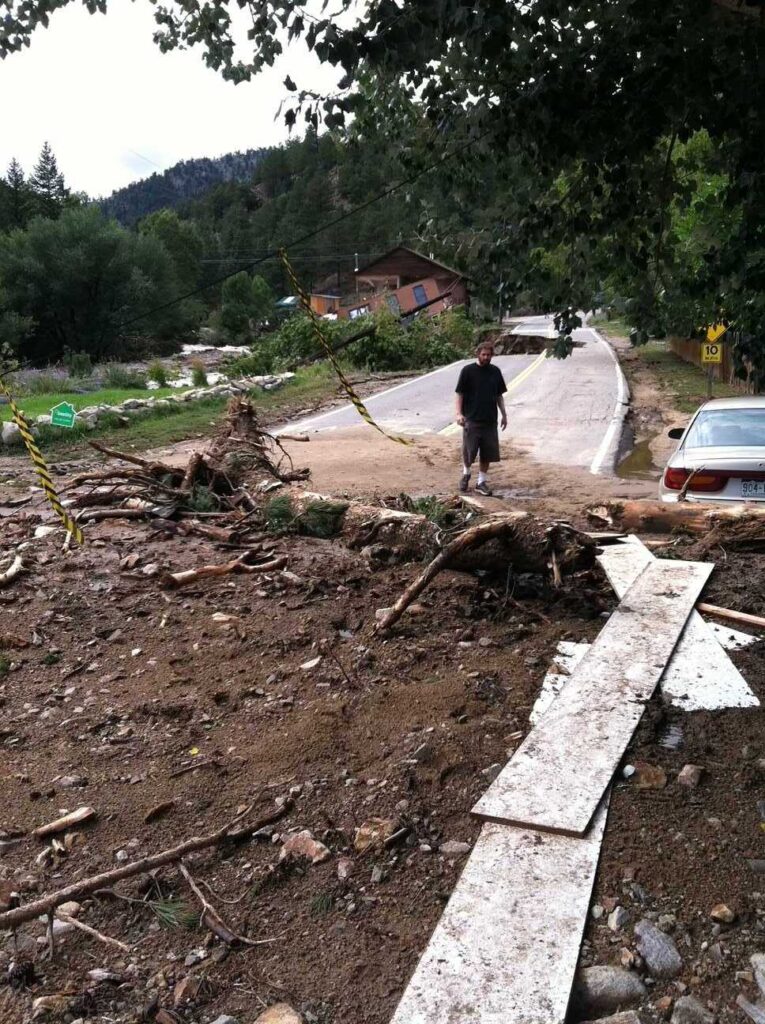
Bloom: I want to circle a little bit back to what happened after the sun came out and you realized you were going to be OK. I remember hearing the Mercantile became a community center. There were first responders stationed there throughout the initial emergency recovery response. Can you talk a little bit about what happened once the town entered recovery mode and what this place meant?
Shultz: We always keep the door open, but the door literally didn't close. It just became both the hub for people in town still here, exchanging information, but also the walls were covered in maps and markers and the floor was covered in mud and volunteers came in and out and people made coffee and definitely became even more of the community center that it already was.
So for two months — maybe six weeks, eight weeks, something like that — it was sort of command central for everyone working on these projects.
And then eventually we were able to get a huge water cistern up here and water pumps so that we were able to open up as a cafe once a week. We would have bands come up and then we'd make a huge feast and it was all just run by volunteer workers and by donation.
It was more of a big family gathering, which was really, really helpful that year because people were scattered all over the place: living with a sister in Broomfield or a friend in Westminster or whatever. And so once a week, we'd make the long drive back here and everyone would just dance in the streets. There were no cars. It was a special time to be able to get together.
Bloom: Did you ever consider moving away or after the flood at all?
Shultz: No. My family kept asking me that. And I was like, what? I couldn't leave this. I wouldn't leave this. It's the best place on earth. It felt like sometimes you have to pay to live in paradise. And so that's what happened. I'm just grateful for this place.
Bloom: Do you still feel that sense of community that you felt like right after the flood today?
Shultz: I am still so grateful for this place and for the beautiful landscape around us, all the peace and the mountains around us. But of course, you're never going to have that same experience as you are when you're going through a disaster. I mean, that's just a different level of the human experience. That's deeper than your regular day-to-day living. So no, it's not something that you experience every day 10 years out. We're kind of back to regular life, which is good.
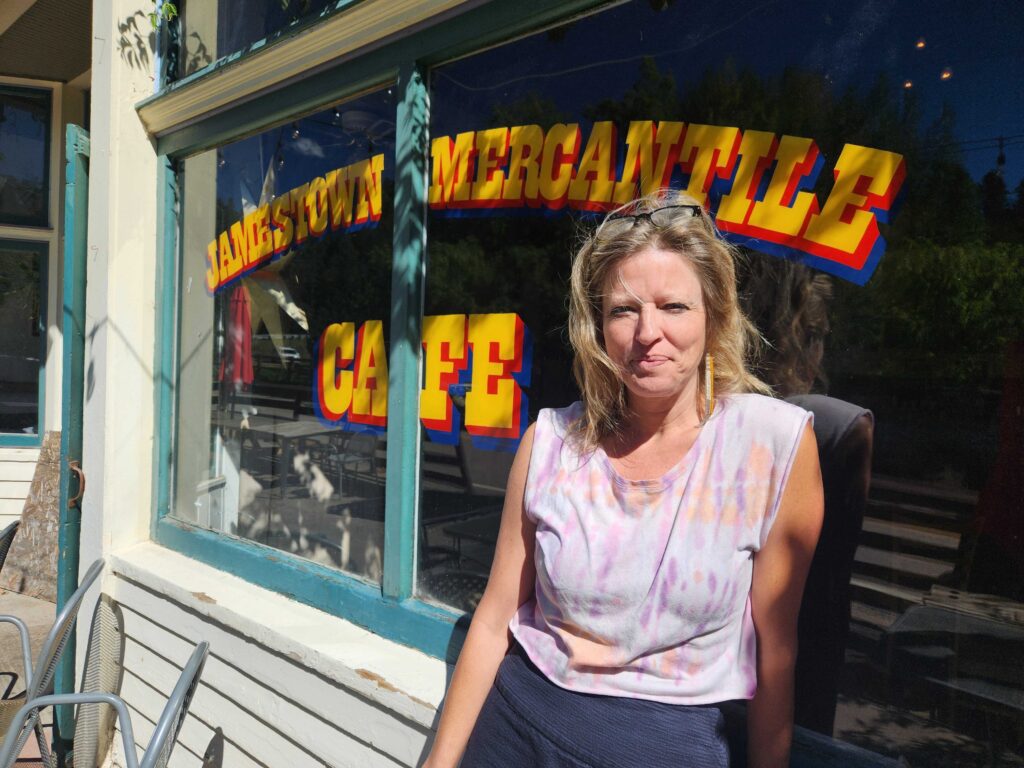
Bloom: What's changed the most about Jamestown in your view?
Shultz: I was thinking about it and I thought about three main changes. Surprisingly, the flood put us on the map for people looking for affordable places to live in Boulder County. Our real estate agent, shortly after this natural disaster, started getting more calls than he'd ever gotten. That has been kind of a hard change for us; Our real estate values have gone up drastically.
For people who wanted to move away, that was no problem at all. But it has, to an extent, changed the fabric of the town just because of the nature of our affordability. We're now a little bit more of an outpost of Boulder's housing.
Losing that affordability has really affected the diversity we had here. We had a lot of different types of people that wouldn't necessarily have gotten to know each other, but they did because we were all in this little town together.
I think we had an idea before the flood that we were self-reliant and self-sufficient. To an extent, we definitely are, but we also realized that if we were going to continue to be a town, we needed to take on a lot of help from the larger community. It was a good lesson.
We became part of this larger community, but at the same time we lost our independence a little bit.
Bloom: You mentioned the mindset of always being ready for the next disaster. Can you talk a little more about what you mean by that? How does that feel on a day-to-day basis?
Shultz: I don't think it's something that we deal with day-to-day. But two years ago we had a fire on the north and south side of town. I think everyone was able to evacuate very quickly because they knew where their go-bag was. I was out of town, but I knew exactly where my photo albums were and I called my friend to grab our goldfish and my photo albums. We're all just ready to jump into action, because we know that life can change in an instant.
Bloom: Especially because, as you said, we're seeing all sorts of disasters. It feels like more frequently than ever because of climate change.
Shultz: Of course, you never think it's going to be you. I mean, look at the Marshall Fire. You don't move into suburban Louisville thinking that one day your entire neighborhood is going to burn down. I mean, there's surprising climate change stories all around us, and I think working with all these people who are there to help afterwards is the best we can do. Just try to keep helping each other out.
Bloom: Thank you for speaking with me, Rainbow.
Shultz: Thanks for coming to the Mercantile.

